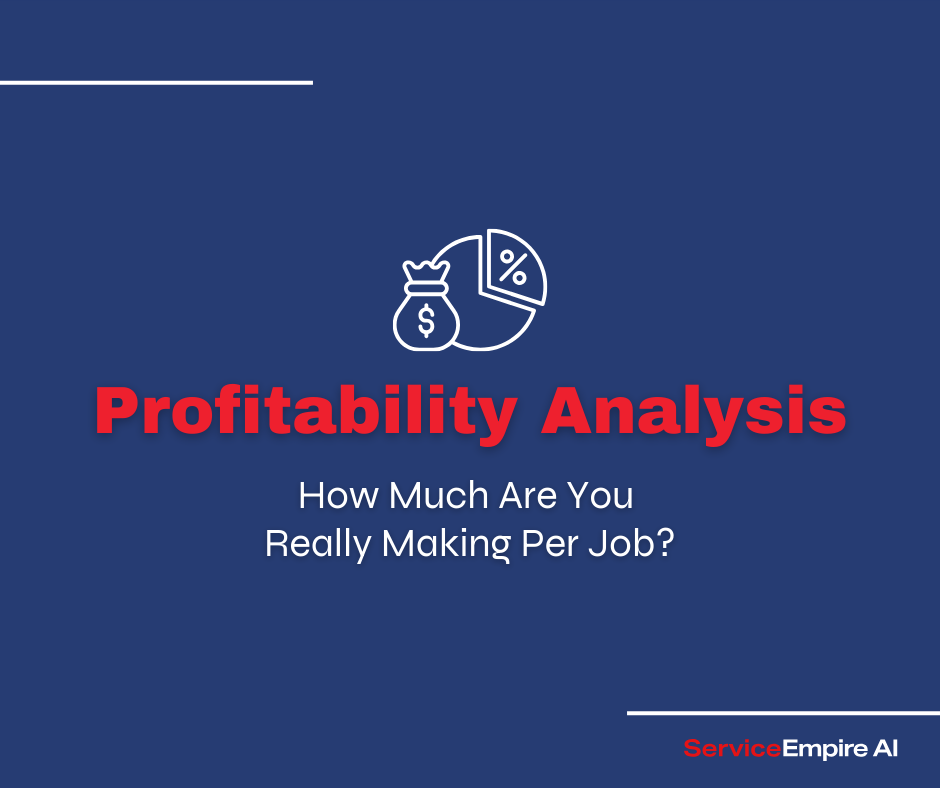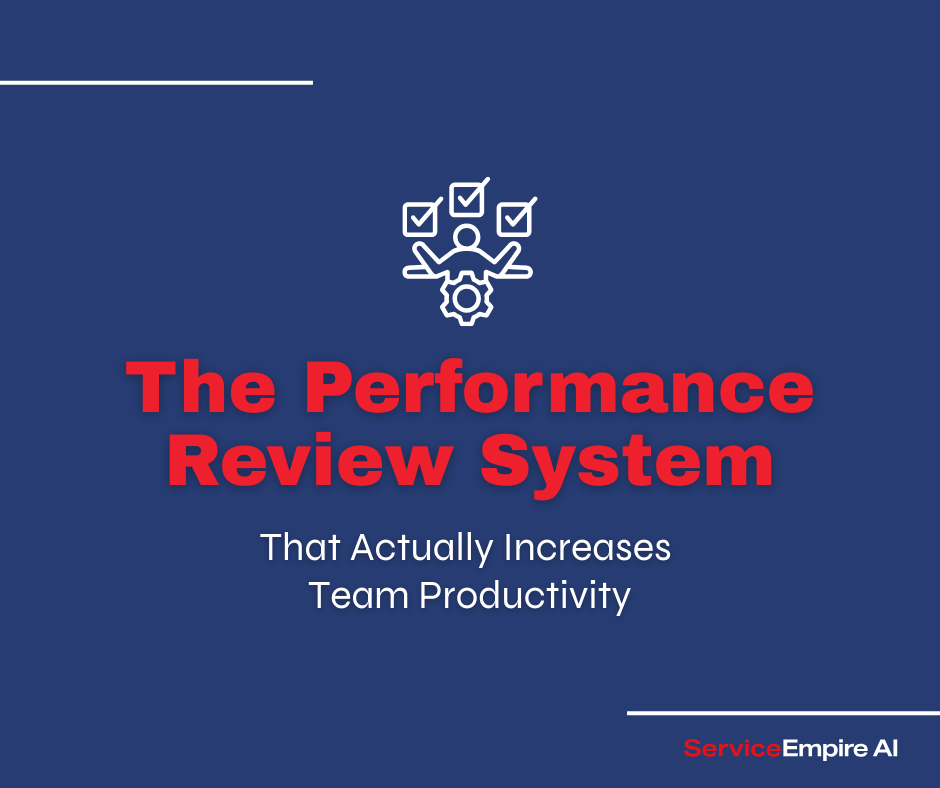
Plumbers are in steady demand across the U.S., with around 26,300 job openings expected each year through 2033. This strong demand leads to solid pay, with the average plumber salary now at $64,810 nationwide.
How much a plumber earns can vary a lot. Experience is a big factor—apprentices earn less, while journeymen and master plumbers make much more. Where you live also matters, with a plumber salary in some states being up to $40,000 higher than in others. Special skills, union membership, and owning a business can also boost income.
This guide breaks down plumber salary details by experience, location, and other factors, so you can see what to expect at every stage of your career.
Plumber Career Path and Salary Progression
The plumbing profession follows a structured career progression that directly correlates with earning potential. As plumbers advance through training and experience, their income typically increases accordingly.
Apprentice Plumber
The entry point to the profession:
- Salary Range: $30,000-$40,000 annually
- Hourly Wage: $14-$19 per hour
- Training Requirements: Usually 4-5 years of supervised training
- Responsibilities: Basic installations, repairs, and maintenance under supervision
During this stage, apprentices learn fundamental plumbing skills while working under licensed journeymen or master plumbers. Earnings are modest but increase with proficiency and completed training hours.
Journeyman Plumber
The core professional level:
- Salary Range: $50,000-$70,000 annually
- Hourly Wage: $24-$34 per hour
- Requirements: Completed apprenticeship, passed licensing exams
- Responsibilities: Independent residential and commercial plumbing installations and repairs
At this stage, plumbers work independently on most standard plumbing systems. Many specialize in residential, commercial, or service work, which can affect earnings.
Master Plumber
The highest skill level for practicing plumbers:
- Salary Range: $70,000-$90,000 annually
- Hourly Wage: $34-$43 per hour
- Requirements: Several years as journeyman, advanced licensing exams
- Responsibilities: Complex installations, system design, code compliance, supervision
Master plumbers command premium rates due to their expertise with sophisticated systems, ability to secure permits, and supervisory responsibilities. Many master plumbers move into business ownership or specialized work.
Plumbing Contractor/Business Owner
Independent operators or company owners:
- Salary Range: $75,000-$200,000+ annually
- Requirements: Business license, contractor's license, insurance, bonding
- Responsibilities: Business management, project bidding, team leadership
Business owners' earnings vary dramatically based on company size, market, specialization, and business acumen. Successful plumbing business owners can earn well into six figures.
Average Plumber Salary by Experience Level
Experience directly correlates with earning potential in the plumbing profession, with significant increases typically occurring at key career milestones.
Entry-Level (0-2 Years)
New plumbers and early-stage apprentices fall into this category:
- Average Annual Salary: $33,500
- Salary Range: $26,000-$41,000
- 10th Percentile: $24,800
- 90th Percentile: $43,600
- Hourly Rate: $14-$20
During this phase, plumbers build fundamental skills in tool usage, basic installations, and material identification.
Early Career (2-5 Years)
Advanced apprentices and new journeymen fall into this category:
- Average Annual Salary: $48,800
- Salary Range: $40,000-$57,000
- 10th Percentile: $38,500
- 90th Percentile: $60,000
- Hourly Rate: $19-$27
At this stage, plumbers typically complete apprenticeships and may obtain journeyman licensing.
Mid-Career (5-10 Years)
Established journeyman plumbers with solid experience:
- Average Annual Salary: $62,700
- Salary Range: $53,000-$75,000
- 10th Percentile: $50,500
- 90th Percentile: $78,000
- Hourly Rate: $26-$36
Mid-career plumbers often develop specializations and take on more complex projects.
Experienced (10-20 Years)
Senior journeymen and master plumbers:
- Average Annual Salary: $77,400
- Salary Range: $65,000-$95,000
- 10th Percentile: $62,000
- 90th Percentile: $98,000
- Hourly Rate: $31-$46
These professionals often serve as project leads, supervisors, or may run their own businesses.
Late Career (20+ Years)
Master plumbers with extensive experience:
- Average Annual Salary: $85,600
- Salary Range: $75,000-$110,000+
- 10th Percentile: $70,000
- 90th Percentile: $115,000
- Hourly Rate: $36-$53+
Late-career plumbers typically own businesses, serve as master plumbers for large companies, or work in specialized, high-paying niches.
Plumber Salary by State
Geographic location significantly impacts plumber earnings, with variations of 30-50% between the highest and lowest-paying states.
Top 10 Highest-Paying States for Plumbers
Bottom 10 Lowest-Paying States for Plumbers
Regional Salary Patterns
Several clear regional patterns emerge from the data above:
- Northeast: Consistently high salaries ($70,000-$84,000)
- West Coast: Above-average pay, especially in urban areas ($70,000-$79,000)
- Midwest: Strong union presence leads to solid wages ($65,000-$82,000)
- Southeast: Generally lower compensation ($47,000-$55,000)
- Mountain West: Moderate salaries with some exceptions ($52,000-$65,000)
Cost of Living Adjusted Comparison
When adjusting for cost of living, the highest effective plumber salaries are found in:
- Illinois
- Minnesota
- Wisconsin
- Michigan
- Alaska
States like California and New York offer high nominal salaries but rank lower when adjusted for living costs.
Metropolitan vs. Rural Differences
Urban plumbers typically earn 15-25% more than their rural counterparts:
- Major Metropolitan Areas: $65,000-$95,000
- Suburban Areas: $55,000-$75,000
- Rural Areas: $45,000-$60,000
However, lower living costs in rural areas can partially offset these differences.
Plumber Salary by Specialization
Specializing in particular types of plumbing work can significantly impact earning potential.
Residential Plumber
Focus on home plumbing systems:
- Average Annual Salary: $56,000
- Salary Range: $45,000-$70,000
- Key Work Areas: Home repairs, fixture installations, remodeling plumbing
- Earning Factors: Service call volume, efficiency, customer base
Residential plumbers benefit from steady demand but face more price competition.
Commercial Plumber
Focusing on business and commercial buildings:
- Average Annual Salary: $67,000
- Salary Range: $55,000-$85,000
- Key Work Areas: Office buildings, retail spaces, restaurants, large systems
- Earning Factors: Project size, specialization, union membership
Commercial projects typically offer higher pay due to complexity and scale.
Industrial Plumber
Specializing in manufacturing and industrial facilities:
- Average Annual Salary: $75,000
- Salary Range: $65,000-$95,000
- Key Work Areas: Factories, processing plants, specialized systems
- Earning Factors: Technical expertise, hazard pay, specialized knowledge
Industrial plumbers command premium rates due to specialized knowledge and often challenging working conditions.
Service and Repair Plumber
Focus on maintenance and emergency repairs:
- Average Annual Salary: $60,000
- Salary Range: $48,000-$75,000
- Key Work Areas: Emergency repairs, maintenance, troubleshooting
- Earning Factors: On-call availability, diagnostic skills, efficiency
Service plumbers often earn premium rates for emergency and after-hours work.
New Construction Plumber
Specializing in plumbing for new buildings:
- Average Annual Salary: $58,000
- Salary Range: $48,000-$72,000
- Key Work Areas: New homes, commercial construction, installation
- Earning Factors: Construction volume, project size, efficiency
New construction offers steady work but can be subject to construction industry cycles.
Specialized Systems Plumber
Focus on specific technical systems:
- Average Annual Salary: $77,000
- Salary Range: $65,000-$95,000
- Key Work Areas: Medical gas, fire sprinklers, backflow, solar water systems
- Earning Factors: Specialized certification, technical expertise, liability
These specialties require additional certification but command premium rates.
Union vs. Non-Union Plumber Salaries
Union membership significantly impacts plumber compensation, both in direct wages and total benefit packages.
Average Union Plumber Wages
Union plumbers typically earn higher base wages:
- Average Annual Salary: $73,400
- Salary Range: $60,000-$90,000
- Hourly Rate: $35-$43
- Regional Variations: Stronger in Northeast, Midwest, and West Coast
Unions like the United Association (UA) negotiate collective bargaining agreements that establish wage scales based on experience and certification.
Union Benefits Monetary Value
The total compensation package for union plumbers includes substantial benefits:
- Health Insurance: $12,000-$18,000 annual value
- Pension Contributions: $8,000-$12,000 annually
- Training Programs: $2,000-$5,000 annual value
- Paid Time Off: $3,000-$6,000 annual value
- Total Benefits Package: $25,000-$41,000 annual value
These benefits significantly enhance the total compensation beyond base salary.
Non-Union Plumber Average Earnings
Non-union plumbers typically earn less in both wages and benefits:
- Average Annual Salary: $56,800
- Salary Range: $42,000-$75,000
- Hourly Rate: $20-$36
- Benefits: Highly variable; often limited
Non-union compensation varies widely based on employer, location, and individual negotiation ability.
Regional Variations in Union Presence
Union influence varies significantly by region:
- Strong Union Presence (40-70% of plumbers): Northeast, Upper Midwest, West Coast
- Moderate Union Presence (20-40% of plumbers): Great Lakes, Mountain West
- Limited Union Presence (5-20% of plumbers): Southeast, Southwest, Rural Areas
Union strength directly correlates with regional wage variations.
Self-Employed Plumber Income
Self-employment offers significant income potential but comes with additional costs and risks. Going out on your own isn't for everyone. But if you want to earn the most, you'll face the challenges and risks head on and figure it out.
Average Revenue for Plumbing Business Owners
Revenue varies significantly based on business model:
- Solo Operators: $100,000-$200,000 annual revenue
- Small Companies (2-5 employees): $250,000-$750,000 annual revenue
- Mid-Size Companies (6-15 employees): $750,000-$2,000,000 annual revenue
- Large Operations (16+ employees): $2,000,000+ annual revenue
Expense Ratios and Net Income
Revenue doesn't equal personal income due to business expenses:
- Typical Expense Ratio: 60-75% of revenue
- Solo Operator Net Income: $50,000-$100,000
- Small Company Owner Net Income: $75,000-$150,000
- Mid-Size Company Owner Net Income: $100,000-$250,000+
- Large Company Owner Net Income: $150,000-$500,000+
Key expenses include employee wages, insurance, vehicles, equipment, supplies, and advertising.
Business Size Impact on Earnings
Business scale affects both revenue and profit margin:
- Solo Operators: Limited by personal capacity but lowest overhead
- Small Companies: Higher revenue potential but increased management demands
- Mid-Size Companies: Economies of scale improve margins if managed efficiently
- Large Operations: Highest revenue potential but require significant management expertise
The sweet spot for many owners is a well-managed small to mid-size company that balances revenue potential with manageable complexity.
Growth Trajectory and Earning Potential
Typical plumbing business income progression:
- Year 1-2: Often break-even or modest profit ($40,000-$60,000)
- Year 3-5: Established business with stable income ($75,000-$100,000)
- Year 5-10: Growth phase with increasing profit ($100,000-$150,000)
- Year 10+: Mature business with strong earnings ($150,000-$250,000+)
Master the ROAS formula and your plumbing business could scale without limits! Successful owners who scale effectively will eventually earn $250,000+ annually.
And that is how the top earners bring in 400% more than everyone else. You can do the math. The average plumber salary is $63,350. Multiplied by 4. $253,400.
Plumber Salary Compared to Other Trades
Curious how plumber earnings compare to other field service professionals / trades? Here's a chart to compare.
Plumbers earn competitive wages compared to other skilled trades, with similar training requirements and career progression.
Education, Certification and Salary Correlation
Additional credentials and training directly impact earning potential for plumbing professionals.
Basic Licensing Income Impact
The progression from apprentice to licensed journeyman typically brings a substantial pay increase:
- Average Salary Increase: 40-60% ($35,000 to $60,000)
- Investment Required: 4-5 years of apprenticeship, exam fees ($200-$400)
- ROI: Extremely high over career lifetime
Advanced Certification Salary Boosts
Master plumber certification further increases earnings:
- Average Salary Increase: 25-35% above journeyman rates
- Investment Required: Additional 2-4 years experience, advanced exam ($200-$500)
- ROI: Very high, especially for those planning business ownership
Specialized Training Return on Investment
Specialty certifications offer targeted income improvements:
- Medical Gas Certification: 10-15% salary premium
- Backflow Prevention Certification: 5-10% salary premium
- Plumbing Design Certification: 10-20% salary premium
- Green Plumbing Certification: 5-15% salary premium
The typical investment for these certifications ranges from $500-$2,000 in training and exam costs, with ROI achieved within 1-2 years.
Continuing Education Income Benefits
Ongoing education correlates with higher earnings:
- Professionals with 10+ hours annual CE: 7-12% higher average earnings
- Technology-specific training: 5-10% premium for specialized systems
- Business management education: 15-25% higher earnings for owner-operators
Continuous learning signals expertise and allows access to emerging, higher-paying specialties.
Factors That Influence Plumber Salaries
Multiple variables contribute to the substantial salary variations observed across the plumbing profession.
Local Demand Impact
Market-specific labor demand significantly affects wages:
- High-Growth Regions: 10-20% above national average
- Construction Boom Areas: Temporary increases of 15-30%
- Aging Infrastructure Regions: Steady demand and stable higher wages
- Economic Decline Areas: 10-20% below national average
Licensing Requirement Variations
States with stricter licensing tend to have higher wages:
- Rigorous Licensing States: 10-15% higher average wages
- Minimal Licensing States: 5-10% lower average wages
- No Statewide Licensing: Often lower wages except in regulated cities
Stricter requirements create barriers to entry that support higher compensation.
Industry Sector Influences
Various plumbing sectors offer different compensation levels:
- Residential Service: Moderate base + potential for performance bonuses
- New Construction: Steady work but more competitive pricing
- Commercial: Higher base pay for technical expertise
- Industrial: Premium rates for specialized knowledge
- Government/Institutional: Stable pay with excellent benefits
Influence Factors for Salary Variation
Benefits and Total Compensation
Base salary represents only part of the total compensation package for employed plumbers.
Health Insurance Value
Health benefits add significant value:
- Individual Coverage: $6,000-$8,000 annual value
- Family Coverage: $12,000-$18,000 annual value
- Coverage Quality: Varies significantly by employer
- Availability: Nearly universal for union plumbers, variable for non-union
Retirement Plan Contributions
Retirement benefits vary widely:
- Union Pension Plans: $8,000-$12,000 annual employer contribution
- 401(k) Matching: Typically 3-6% of salary ($1,800-$5,400)
- Profit Sharing: Variable but can add 5-10% of salary annually
Paid Time Off Monetary Value
The value of paid leave adds to total compensation:
- Vacation Days: 5-20 days annually ($1,200-$6,000 value)
- Sick Leave: 3-10 days annually ($700-$3,000 value)
- Holidays: 6-10 days annually ($1,400-$3,000 value)
Tool Allowances and Reimbursements
Equipment provisions also have monetary value:
- Tool Allowance: $500-$2,000 annually
- Work Boot Allowance: $100-$300 annually
- Uniform/Clothing Provision: $200-$600 annually
Vehicle Usage Benefits
Company vehicle access represents significant value:
- Dedicated Company Vehicle: $5,000-$10,000 annual value
- Mileage Reimbursement: $2,000-$5,000 annual value for personal vehicle use
- Fuel Cards/Allowances: $1,200-$3,600 annual value
Typical Benefits Package Value Calculation
For some union member plumbers, benefits can add 30-50% to the value of base salary.
Plumber Salary Growth Trends
Understanding historical patterns and future projections helps plumbers make informed career decisions.
Historical Salary Trends
Over the past decade, plumber salaries have shown steady growth according to Consumer Affairs:
- 2015 Average Salary: $53,860
- 2025 Average Salary: $64,810
- 10-Year Growth Rate: 20.3%
Projected Salary Growth Rates
Forward-looking projections suggest continued positive trends:
- Expected 5-Year Growth: 8-12%
- Expected 10-Year Growth: 16-20%
- Annual Growth Rate: 1.5-2.0%
These projections exceed expected inflation in many forecasts, suggesting real wage growth.
Economic Factor Influences
Several economic factors will impact future plumber earnings:
- Labor Shortage: Aging workforce and limited new entrants pushing wages up
- Construction Cycles: Housing and commercial development affecting demand
- Infrastructure Investment: Public works projects creating additional demand
- Technology Changes: New systems requiring additional expertise and certification
Housing Market Correlation
Plumber earnings show moderate correlation with housing market activity:
- New Construction Booms: 3-6 month lagging indicator for wage increases
- Renovation Surges: Immediate impact on service plumber demand
- Housing Market Downturns: Often offset by increased repair focus
Labor Shortage Impacts
The ongoing skilled trades gap significantly benefits plumber earnings:
- Current Shortage: Estimated 30,000 unfilled plumbing positions nationally
- Aging Workforce: 40% of plumbers aged 45+ (10% above overall workforce average)
- Training Pipeline: Only 21,000 new apprentices annually vs. 48,600 job openings
- Wage Effect: 0.5-1.0% additional annual wage growth due to shortage pressures
This shortage is expected to persist for the next 10-15 years, supporting wage growth.
How to Maximize Plumber Earnings
Strategic career decisions can significantly enhance income potential for plumbing professionals.
Certification Strategies for Income Growth
Targeted certifications offer the clearest path to higher earnings:
- Obtain journeyman license as quickly as possible
- Pursue master plumber certification after meeting experience requirements
- Add specialized certifications based on market demand
- Consider complementary licenses (gas fitting, HVAC, etc.)
- Obtain business/contractor licensing for highest earning potential
Specialization Choices for Higher Pay
Certain specialties command premium rates:
- Medical gas systems (hospitals, medical facilities)
- Industrial process piping
- High-rise plumbing systems
- Backflow prevention specialists
- Green plumbing/water conservation systems
Research local market needs to identify undersupplied specialties with premium rates.
Geographic Relocation Considerations
Strategic relocation can substantially increase earnings:
- Review the highest-paying regions adjusted for cost of living (above)
- Consider boom markets with acute labor shortages
- Evaluate union strength in potential locations
- Factor in licensing reciprocity between states
- Balance higher wages against relocation and living costs
Business Development Approaches
For entrepreneurial plumbers, business ownership offers highest earning potential:
- Start with residential service focus for lower startup costs
- Build reputation and client base while employed
- Develop niche expertise for premium pricing
- Implement efficient scheduling and operations systems
- Scale gradually with quality employees
Conclusion
The plumbing profession continues to offer strong earning potential across experience levels, specializations, and geographic regions. With the average plumber salary reaching $64,810 nationally, and experienced professionals earning $80,000-$90,000+, the field represents an attractive career path with minimal educational debt requirements compared to many professions requiring similar earning potential.
The most significant salary determinants remain experience level and geographic location, with union membership, specialization, and business ownership also playing substantial roles. Strategic career planning—including certification advancement, specialization selection, and potentially geographic relocation—can significantly enhance earning potential throughout a plumbing career.
As labor shortages persist and infrastructure needs grow, plumbing professionals with the right skills and credentials will likely continue to command competitive compensation, making this skilled trade a financially rewarding career choice for the foreseeable future.
FAQ Section
What is the starting salary for a plumber apprentice?
Plumber apprentices typically earn between $30,000-$40,000 annually ($14-$19 per hour), with the national average around $35,000. Starting wages are usually calculated at 40-50% of journeyman rates and increase progressively throughout the 4-5 year apprenticeship. First-year apprentices generally earn at the lower end of this range, while those in their final apprenticeship year approach the upper end. Union apprenticeships typically offer slightly higher starting wages and more structured pay progression. Geographic location significantly impacts these figures, with apprentices in the Northeast and West Coast earning 15-20% more than those in the Southeast and rural areas. Most apprentices also receive benefits including health insurance and retirement contributions, particularly in union programs.
How long does it take to reach top plumber salary levels?
Reaching peak plumber earnings typically requires 10-15 years of progressive experience and advancement. The journey begins with a 4-5 year apprenticeship, followed by obtaining journeyman licensing. After 2-4 additional years working as a journeyman (totaling 6-9 years in the field), plumbers can qualify for master plumber certification in most states. Top earnings generally come from either: 1) becoming a master plumber with 10+ years of experience ($75,000-$90,000); 2) specializing in premium sectors like industrial or medical plumbing (similar earnings range); or 3) establishing a successful plumbing business (potentially $100,000-$200,000+). Business ownership typically offers the highest earning potential but requires additional business management skills and assumes greater risk.
Do commercial plumbers make more than residential plumbers?
Yes, commercial plumbers earn approximately 15-25% more than residential plumbers on average. Commercial plumbers typically make $67,000 annually compared to $56,000 for residential specialists. This wage premium exists because commercial work generally requires: more complex system knowledge; larger-scale projects; greater technical expertise; stricter compliance with commercial building codes; and often union membership. However, experienced residential service plumbers specializing in emergency work or premium residential markets can match or exceed commercial plumber earnings through efficiency, specialized expertise, and after-hours premium rates. The commercial-residential wage gap is most pronounced in urban areas and narrower in rural markets where differentiation between sectors is less defined.
Which state pays plumbers the highest salary?
Alaska pays the highest plumber salaries, with an average annual wage of $88,150 ($42.38 hourly), followed closely by Massachusetts at $84,090 and New York at $83,820. These elevated wages reflect several factors: higher cost of living; strong union presence; strict licensing requirements creating barriers to entry; challenging working conditions (particularly in Alaska); and sustained construction demand. However, when adjusted for cost of living, states like Illinois, Minnesota, and Wisconsin offer the best effective compensation, as their relatively high nominal wages provide greater purchasing power in regions with more moderate living costs. Metropolitan areas within top-paying states command even higher wages, with plumbers in Anchorage, Boston, and New York City earning 10-15% above their respective state averages.
Is plumbing a good career financially?
Plumbing offers excellent financial returns, particularly considering its minimal educational debt requirements. With an average salary of $64,810—significantly above the national average for all occupations—plumbers enjoy strong earning potential throughout their careers. The field provides clear advancement paths from apprentice ($35,000) to journeyman ($60,000) to master plumber ($80,000+), with business ownership potentially yielding $100,000-$200,000+ annually. Additional benefits include: steady demand regardless of economic conditions; substantial union benefits in many regions; entrepreneurial opportunities with minimal startup capital; and practical impossibility of outsourcing. When comparing lifetime earnings minus educational costs, master plumbers often outperform many professions requiring bachelor's degrees. The current skilled trades shortage further enhances job security and wage growth potential for the foreseeable future.






